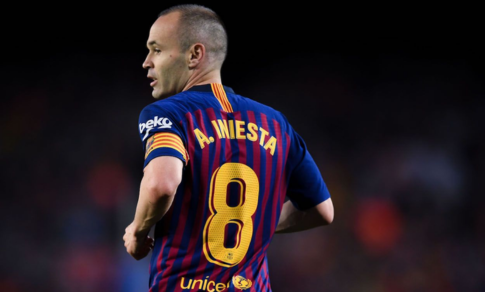Andres Iniesta’s career stands as one of the most celebrated in football history, with fans and commentators alike hailing him as a true footballing genius. Nicknamed "the engineer," "the architect," and "the brain," Iniesta redefined the role of a midfielder. Despite traditional views that midfielders should be large and physically imposing, Iniesta and his partner, Xavi, broke this mold. Together with Sergio Busquets, they formed one of the most effective midfield trios in football, shifting the focus to intelligence and precision over brute strength.
Throughout his career, Iniesta earned admiration from players, coaches, and fans worldwide. Luis Enrique likened him to a "magician," while Vicente del Bosque described him as "the most complete midfielder." Fernando Torres lauded his consistency, and Wayne Rooney even acknowledged him as the best player in the world in 2009, surpassing Lionel Messi. Iniesta's influence was evident in moments like the 2008/09 Champions League semi-final against Chelsea, where his last-minute goal sent Barcelona to the final. Although the referee’s controversial decisions overshadowed the match for some, Iniesta’s brilliance secured Barcelona’s place, leading them to a Champions League victory over Manchester United.
Iniesta's impact extended beyond club football, as he helped redefine Spain's national team. For years, Spain was seen as a talented but underperforming side until their 2008 European Championship win, largely attributed to Iniesta and Xavi’s control in midfield. Two years later, Iniesta scored the decisive goal in the 2010 World Cup final against the Netherlands, sealing Spain’s first world title. His tribute to his late friend, Dani Jarque, during his celebration added emotional depth to his legacy, revealing a side of Iniesta that resonated deeply with fans and players alike.
By 2012, Spain continued its dominance, defeating Italy 4-0 in the Euro final, with Iniesta named player of the tournament. The match symbolized the peak of a golden generation that included Xavi, Villa, Torres, and Casillas, all led by Iniesta’s visionary play. His influence also carried over to club achievements, such as the historic moment in 2012 when Barcelona fielded an entire starting lineup from La Masia, culminating in a 4-0 win with Iniesta providing three assists. From his dazzling run against PSG in 2015 to his orchestration in the Champions League final against Juventus, Iniesta’s brilliance brought Barcelona success and cemented his place in history as the only player to be awarded the best player in the Euro final, World Cup final, and Champions League final.
Even in fierce rivalries, Iniesta's talent earned him respect. In 2015, during Barcelona’s 4-0 victory over Real Madrid, Santiago Bernabéu fans gave him a standing ovation as he was substituted—a rare honor reflecting his universal acclaim. By 2018, as he prepared to leave Barcelona, Iniesta’s farewell was marked by heartfelt tributes. His final match at the Camp Nou was dedicated to him, with fans displaying a massive “Thank you, Iniesta” banner and number eight in his honor. Reflecting on his career, Iniesta described it as a “perfect farewell,” leaving a legacy of sportsmanship, talent, and grace unmatched in modern football.








ADD A COMMENT :